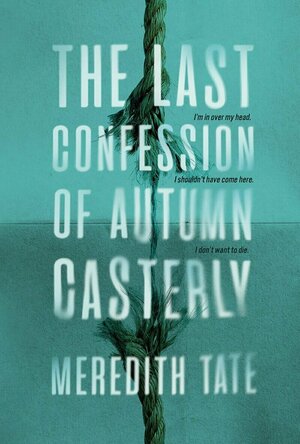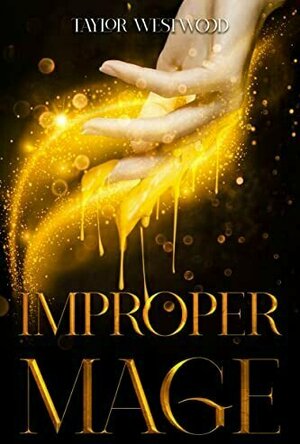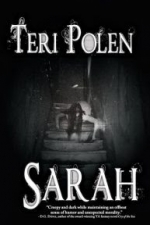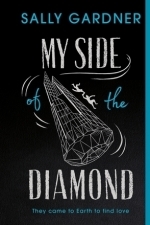Ali A (82 KP) rated The Last Confession of Autumn Casterly in Books
Mar 3, 2020 (Updated Mar 4, 2020)
After a drug deal gone wrong, Autumn is beaten, bound, and hidden away. Tittering between life and death, Autumn leaves her body trying to find help - the problem is the only one who can really sense her is Ivy.
When Autumn doesn’t come home, Ivy knows her sister is in trouble, even though she’s done this before, this time is different. Following chills and intuitions she can’t explain, Ivy follows clues that bring her closer to Autumn’s dangerous location. But soon, dots are connected that lead to the truth - both where Autumn is being kept and what secrets Autumn has been keeping.
This book was so much more than I originally thought it would be. I read it in a day and a half and that was only because I had work in between. The book has a bit of everything… coming of age, sister relationships, broken families, suspense, and mystery… something for anyone who likes something heartbreaking and heartwarming all at the same time. I’m not someone who reads a lot of mysteries, but this novel grabbed me within the first few pages and I couldn’t let go until I knew what happened.
The viewpoint shifts between Ivy and Autumn and it allows you to see more in depth of each sisters’ side of the story, allowing you to dig deeper into the layers of Autumn’s past. I connected with both Ivy (her Nerd Herd is something I would have called my group of friends back in the day) and Autumn (the chip on her shoulder she has after her mother died is one I also had after my father died). Meredith Tate has such an amazing writing style that even the side characters are realistic and have so much depth that it makes you care for them as well. Tate is definitely an author that I will have on my ‘To Read’ list for any future releases.
The Last Confession of Autumn Casterly is a book I would recommend to those of all ages who like suspense but also something heartwarming as well.
I was given an advance copy of this book through BookishFirst in exchange for an honest review.

Duckie Deck With Teeth
Education and Games
App
“I watched a 4 year old and 6 year old play it together the first time they saw it and they...
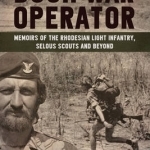
Bush War Operator: Memoirs of the Rhodesian Light Infantry, Selous Scouts and Beyond
Book
From the searing heat of the Zambezi Valley to the freezing cold of the Chimanimani Mountains in...
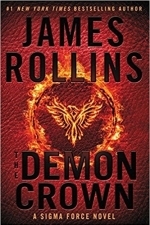
The Demon Crown: Sigma Force Book 13
Book
“Bone-chilling.” –Publishers Weekly (Starred Review) “One of the best in the series.”...
thriller
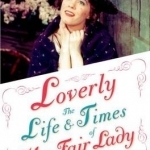
Loverly: The Life and Times of My Fair Lady
Book
Few musicals have had the impact of Lerner and Loewe's timeless classic My Fair Lady. Sitting in the...
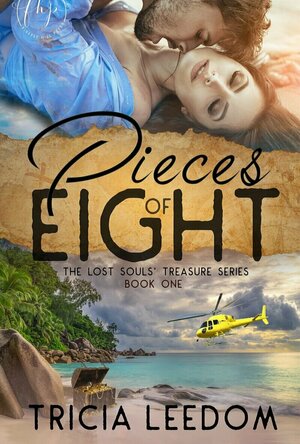
Pieces of Eight (Lost Souls' Treasure #1)
Book
From the author who whisked you away on a wild escapade in the Key West Escape series comes a sexy,...
Adult Adventure Romance
Merissa (13749 KP) rated Improper Mage in Books
Mar 8, 2022
In a world similar to our own, Liana lives in Triaedian - a land where shifters, vampires, and mages all live in harmony?! As a female, she doesn't have many options, and the only magic she is supposed to know is how to help with her household. Luckily for us, Liana is not content with that and learns as much as she can by herself, being a strong and proficient mage, even if she can never show it.
One night she meets Damien, the King of Triaedian, who is fascinated by her. He has ruled alone for some time but, maybe, it is time for him to find his Queen. Liana is flattered until she finds out he has expressed interest in two others as well. Then she feels betrayed and played.
The interaction between these two is brilliant. Liana is seen as an 'odd' one in that she doesn't abide by society's rules for what a woman should do. Damien sees this and doesn't seem to want to change her, delighting in who she is. The attraction is hot and immediate but, once again due to society's rules, they are forbidden to act upon it until they are married. They do push the boundaries and have one particularly steamy moment, but will he marry her or one of the others?
I found the world-building to be brilliant, giving me enough information to see how the world worked without overloading me all at once. I also adored the hidden depths of others characters that sneaked through every so often. There is an overall story arc here so don't expect a HEA ending. What you do get is a fantastic ending that will definitely leave you wanting more.
I immediately went onto the author's website to see if there was any indication of when the next book was due out. For a debut book, this was amazing and I loved every word. Highly recommended by me!!
ps - and if you find out when Improper Queen is due out before me, please let me know! I need it!!
** same worded review will appear elsewhere **
* A copy of this book was provided to me with no requirements for a review. I voluntarily read this book, and the comments here are my honest opinion. *
Merissa
Archaeolibrarian - I Dig Good Books!
The positives first. The plot is very interesting and well thought out. Although not entirely original it isn't your run of the mill haunted house story either.
The main characters are well rounded and sympathetic. They each have a strong voice and are relatable. The author is very good at creating tension and does not shy away from scary/unsettling images.
The narration and pace of the story feels perfect for a young adult book - no slow enough to be condescending but with simple sentence structures and short chapters that will help to encourage reluctant or not so confident readers to stick with it. I would certainly use this book in my teaching role for my higher level students - adults that struggle with literacy and/or have slight learning difficulties.
The messages that this story carries are important ones. The main message is especially vital for both male and female readers.
Now for the negative's. There is rather a lot of repetition in the story. Not just parts of the back story but actual sentences in a couple of instances. This did grow to be tiresome and, had I read this aged fourteen I would have felt the same way. Unfortunately this did tend to slow the story down at times. Reading the exact same joke from four chapters ago isn't great.
The book centres on one character and what happened to her. I felt that the sudden shift in her personality was rushed. More time should have been taken to really understand her and what happened to her.
The fact that she is automatically disbelieved is not great. It's a VERY sensitive subject and to have the rest of the characters do that could easily lodge the idea, in some young people's heads, that they would also be treated with scepticism.
A few times throughout the story there were errors. Mostly continuation errors but a couple of glaring mistakes. For example, two of the characters are playing a video game. Fallout 4. In the story one of the characters 'gets the guy' of the other. Fallout 4 is not a multiplayer game, a friend cannot 'get' you in any way.
Yes, a small thing but hugely annoying when you know that it is wrong. As Fallout 4 is such a popular game this will not go unnoticed by many young adults!
The ending did feel rather rushed. An extra chapter or two to explain what happened and to explore the feelings of the characters properly would have been nice.
So yes, this is an extremely mixed review. Most of the negative's are small and I would have given another star if not for the slightly mixed message surrounding the title character - I was disappointed with that.
The author is obviously very talented and writes perfectly for the YA market. Just a little more time and care would have made it awesome.
Hazel (1853 KP) rated My Side of the Diamond in Books
Sep 16, 2017
My Side of the Diamond is the latest novel by British author Sally Gardner. Employing the use of science fiction, Gardner explores the concept of love in a unique tale of a covered up alien invasion. The main characters are unfortunately caught up in the drama; however, no one will ever believe their story.
Jazmin Little’s best friend, Becky, has disappeared. Some say she was murdered, others claim she committed suicide, but what everyone agrees on is that she jumped from the top of the Shard in London, but never landed. Jazmin knows what happened but the authorities have torn her witness statement to shreds. Now everyone believes that she is the cause of Becky’s disappearance.
The reader plays an active role as the mysterious Mr. Jones who is interviewing a handful of characters involved with the mystery surrounding Becky’s fate. Jazmin and the others tell the reader, as Mr. Jones, the truth about the lead-up to the moment their lives changed forever. Jazmin explains the events that preceded Becky becoming infatuated with the enigmatic Icarus. From their first meeting, bizarre and frightening things began to occur. From Becky’s sudden recovery from anorexia as though she had just had an epiphany, to being chased by an impossible monster, the friends and their relatives are suddenly in serious danger.
Icarus claims to be an alien who has come to Earth to learn about love. Becky instantly believed him, however, Jazmin and the others remained sceptical. As they open up to Mr. Jones, they wish they could go back in time and change the way things panned out. In hindsight, they know who was good and who was bad, but at the time, it was impossible to know whom to trust.
Although the main story focuses on the relationship between Becky and Icarus and their resulting disappearance, Gardner also explores themes of social classes and friendship. Jazmin and Becky were polar opposite: Becky came from a family made of money, whereas Jazmin was lucky to have a can of baked beans for dinner. Despite this, they were best friends who did not let their backgrounds interfere with their relationship. The significance of their social class comes to light as Jazmin explains what happened at the trial after Becky’s disappearance. Being from such a low caste, it was easy for everyone to pin the blame on Jazmin.
The concept behind My Side of the Diamond is interesting, as is the method of narrating the story, however, it lacks any emotional connection. Mr. Jones, although having no dialogue of his own, comes across as an impassive character, and that is how I felt whilst reading the book. None of the characters were particularly relatable and it was difficult to care about what happened to them. Their circumstances were creepy, but also far-fetched and hard to comprehend.
Although Sally Gardner’s ideas are good, My Side of the Diamond is a disappointment, especially coming from a prize-winning author
Saerie_Faerie (18 KP) rated Ready Player One in Books
Feb 17, 2018
However, almost immediately upon starting it I realized I was probably not going to enjoy it as much as I had hoped. Thankfully Wil Wheaton was the performer for the Audio book so I could continue listening.
The main character, Wade, goes on several solilogues about all of the nerd things that he knows everything about. Several times, Wade is miraculously the only one who knows everything and is amazing at it.
At one point he actually just lists out all of the 80s authors he has read in entirety which is amazing for a 17 year old who spends all of his time on the Oasis and also playing video games and watching movies. On top of all that, his list is entirely male authors, directors, and programmers. Why not mention Tamora Pierce, a huge author of the 80s or Marion Zimmer Bradley author of a King Arthur novel which Wade would have been very into considering his character name and the fact that he says he is very into King Arthur.
There are two female characters and they get barely any screen time. Here is where I got super excited because I am a female nerd who plays tons of video games and met several partners online it was going to be good to address the things that happen. But it doesn't. She says she is "deformed" and disappears until the end of the story, then we find out she looks just as amazing as her fake person avatar except *GASP* she has a birthmark on her face. Face birth marks can feel debilitating and terrifying but in the scope of things, its a not problem.
My main problem with Wade is that he asks the love interest "Are you a woman? Are you a woman that has never been a man?" And like... What? Worrying the person you are talking to is who they say they are is a big thing but to go straight to being transphobic is not okay. Sure, he is a teenager but he is a teenager in the distant future where people literally go to school in a video game and can make an alien avatar, surely it wouldn't still be "weird".
More than anything this felt like a nerd dream fantasy life that "came true". Was THE BEST at all the things, became rich from video games, got the hot girl, became famous. What more could you want?
But I still really like this book and story, it just could have gone so much better. So many important things could have been addressed and explained and they just weren't.
